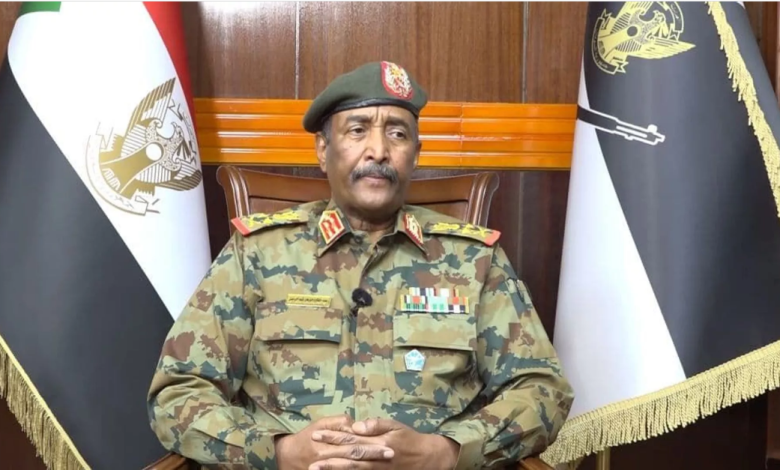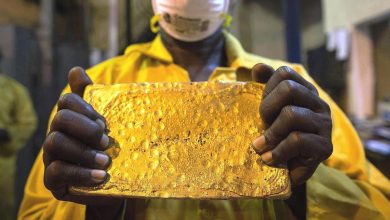Dismissal of Ministers and Top Officials…a Political Agenda in the Economic Field

Sudan Events-Report-Rehab Abdullah
The decision of the Head of the TSC Lt.Gen.Abdul Fatah Al-Burhan, to dismiss five ministers in economic sector ,addition to many other institutions such as the Expatriates Authority and the Sudanese Mineral Resources Company, and to assign ministers and officials to succeed them, raised many questions on causes of this decision, are these mere of political changes or aims to reform the
economic situation?
Some observers believe that these costs came at an inappropriate time and doubt that they to leave a positive impact on the Sudanese economy. The fact is that the problem of the economy and the solutions do not include appointing new ministers, in that the problems and failures are greater and require other decisions.
One of the dismissed ministers was the Minister of Transport was originally an undersecretary in the same ministry, a civil service employee, who rose to the position of acting minister since October 25, 2021. Also, the minister of Commerce was an employee of the Ministry and was assigned, and some believe that dismissing the Minister of Livestock is a political decision above all, given that he is affiliated with the Rapid Support Forces and came through Juba Peace Agreement. Therefore, instructions were issued to the Juba Peace Force to nominate another alternative who is not affiliated with the Rapid Support Forces, and this made it clearly that the dismissals have nothing to do with improving the economic situation, but rather are primarily political decisions.
Economic expert, Dr. Mohamed Al-Nayer, affirmed in his interview to (Sudan Events) that what was done was merely support to the current government in a way of replacement, and doesn’t not complete formation of the government, Al-Nayer’s opinion is that requirement is the complete formation of a government of independent competencies, some he believes that within war conditions, it will not be possible or that a replacement will be available.
Al-Nayer believes that a government of independent competencies is suitable in times of war and peacetime, and to complete the transitional period up-to reach the election period to bring that to govern through the ballot.
However, Al-Nayer also believes that it had to be formed. A government of complete independent competencies that includes the entire state executive apparatus so that it can develop plans and programs to activate the performance of the executive apparatus on the one hand and support the state in the current situations through and support military action that enables SAF to carry out its tasks in a significant way. He recons requirement is the formation of a complete government, , the country’s leadership has its own vision and assessments that may deem it necessary to continue with this government until end of war ,followed an independent, competent government for transitional phase.
What is important is dismissals are for a political, not economic goal is the decision to dismiss the Minister of Livestock and asking the peace parties from Juba to nominate an alternative. Al-Nayer considered that this confirms that Juba Peace Agreement is still continuing until the vision becomes completely clear, given that there is a discrepancy regarding who are neutral and who lean toward one party. Furthermore, he stressed the importance of resolving this issue in the next stage because Sudan is going through a very dangerous turning point and there must be clarity of vision, especially for those who signed the peace agreement from Juba.
Certainly, supporting the executive apparatus is a positive thing to appoint some ministers and officials to appoint others, but we believe that it would have been more effective to form a fully competent government suitable for the remainder of the war period and then complete the transitional phase until free and fair elections are reached.
Dean of Faculty of Economics at Sudan University Dr. Abdel-Azim Al-Mahal, doubts referring changes to the economic situation. He said in his interview to “Sudan Events” that during the last period, the economic performance was so poor, ,dollar price reached more than SDGs 1000 as well as the inflation increased at a high rate, reaching in the latest report issued by the Central Bureau of Statistics with 63.31%, in addition to the cessation of economic activity in Khartoum followed April 15 war between the SAFand the RSF Militia that caused expenses on security and defense increased, production process had stopped, the economy became war economy. Therefore, Al-Mahal believes that changing the ministers of the economic sector will not change the scene much because the war is still continuing, factories are destroyed, the Sudanese economy has lost more than $50 billion .The economy lacks the capital. Factories have been destroyed, banks and citizens have been looted, “For the first time we know that the Sudanese have great wealth in gold, dollars and cars, and this money is outside the banking system,” “The state is poor and the citizens are rich.” He continued.
Therefore, he declared that the new ministers would find empty stores and budgets directed to war, and would not even be able to communicate with their subordinates. He advised the new ministers that if they wanted to succeed, they must change the previous path, then they could scor some achievements, pointing out that it meant that they should pay attention to the regions, the regions’ industry, agriculture, trade, and services, and establishing the renaissance and development of the regions with a sound scientific plan. If they do not find a plan, they should return to the plans of the Arkaweet Conference in the sixties during the era of Abboud.
At a time when many agreed on the futility of changes to the course of the Sudanese economy, economic expert Enas Ibrahim was optimistic and expected that the new ministers would serve to reform the Sudanese economy. She acknowledged the great burden that awaits them, pointing out that the economy continued to suffer from many problems, which have now been exacerbated by the ongoing conflict in the country. She stressed the need to take into account the preparation of the economic sector in other states of Sudan.



